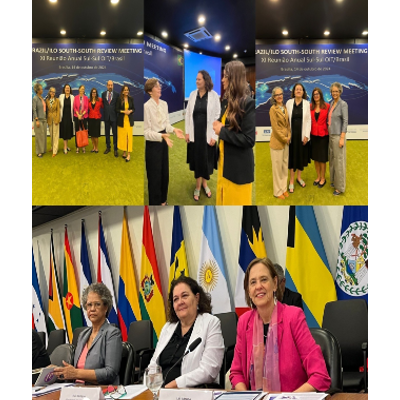
The XI Annual South-South ILO/Brazil Meeting, held in the capital Brasília, brought together leaders and experts to discuss the current challenges of decent work and social justice within the framework of South-South dialogues.
One of the first thematic sessions addressed the promotion of pay equity and care policies. These two topics, at the heart of the global agenda for decent work and gender equality, are essential not only to ensure fundamental rights but also to strengthen inclusion in our societies.
The objective of this dialogue was to discuss the perspectives of the Brazilian government and the ILO on the issues of promoting pay equity and care policy, assessing how South-South cooperation can contribute to the improvement of public policies in the cooperating countries of the Brazil-ILO program.
Anita Amorim, head of the Emerging and Special Partnerships unit within the International Labour Organization (ILO), moderated the exchanges, reminding participants of the ILO and its partners’ commitment to finding concrete solutions to reduce the gender pay gap and to support care policies, as women currently perform 76.2% of all unpaid care work worldwide.
In this regard, she mentioned the theme chosen by the ILO Governing Body at the 112th session (2024) of the ILC, making the care economy a key area for advancing the transformative agenda for gender equality, equity, diversity, and inclusion, and promoting a care ecosystem for all.
During this exchange, the following speakers participated: Laís Abramo, National Secretary for Care and Family Policy, Ministry of Social Development and Assistance, Family and Fight against Hunger (MDS); Paula Montagner, Deputy Secretary for Labor Statistics and Studies, Ministry of Labor and Employment (MTE); Neuza Tito, Director of Labor and Income Security, National Secretariat for Economic Autonomy and Care Policy, Ministry of Women’s Affairs.
More broadly, this event highlights the importance of concerted action within the framework of South-South cooperation to promote decent work and social justice. Through this initiative, Brazil continues to position itself as a key player in promoting workers’ rights at the international level.
For more information, contact: Ministry of Labor and Employment of Brazil and the International Labour Organization (ILO).

